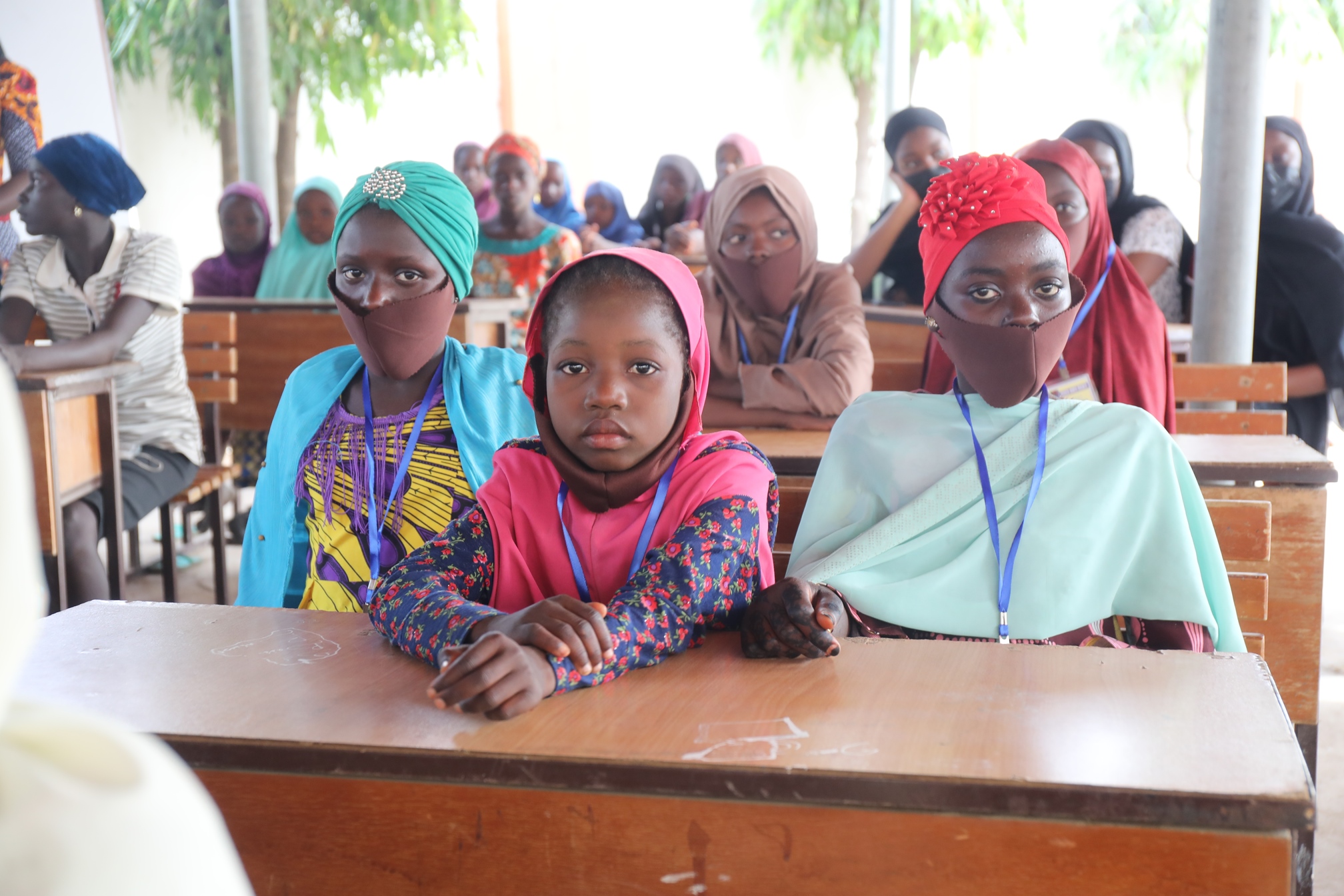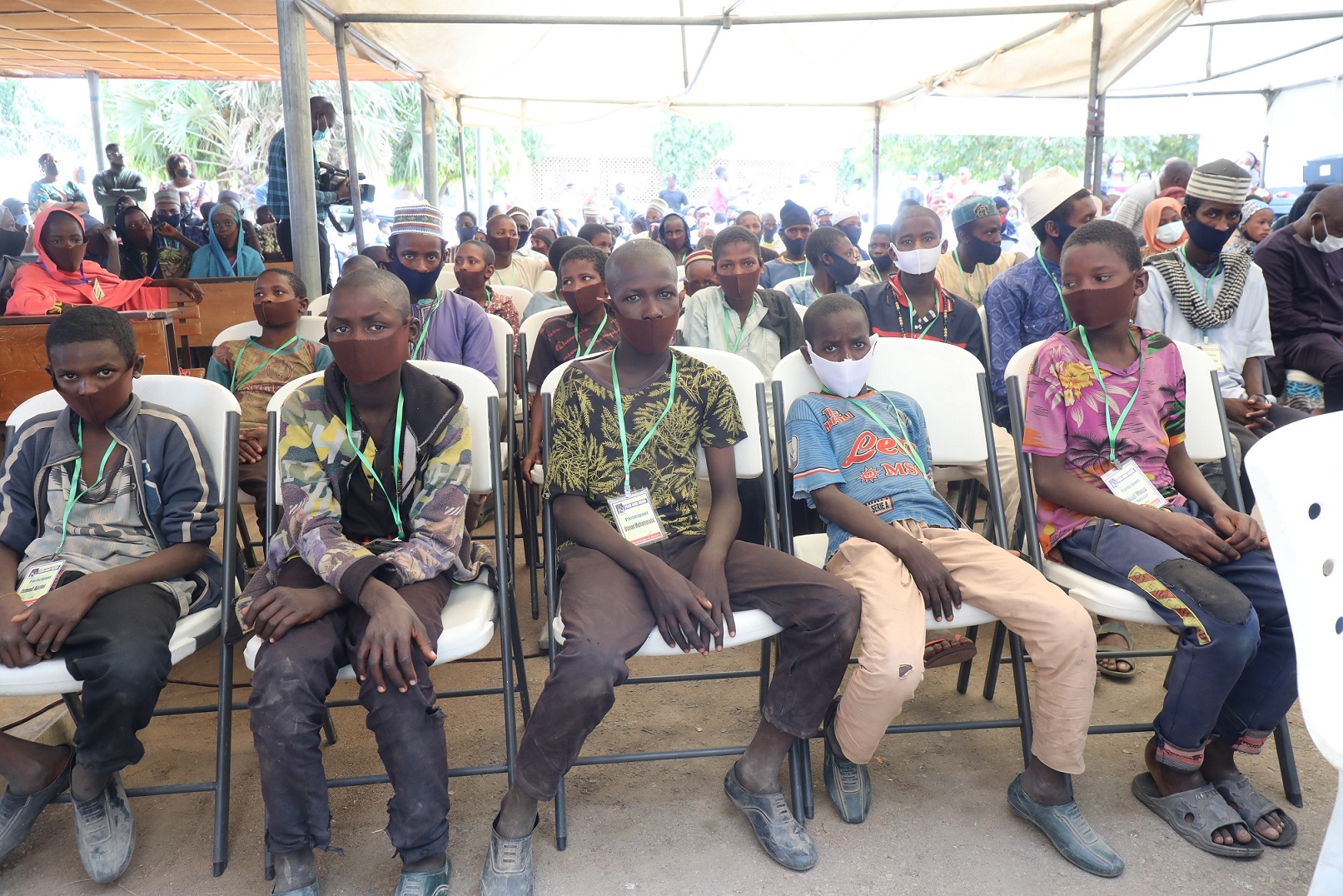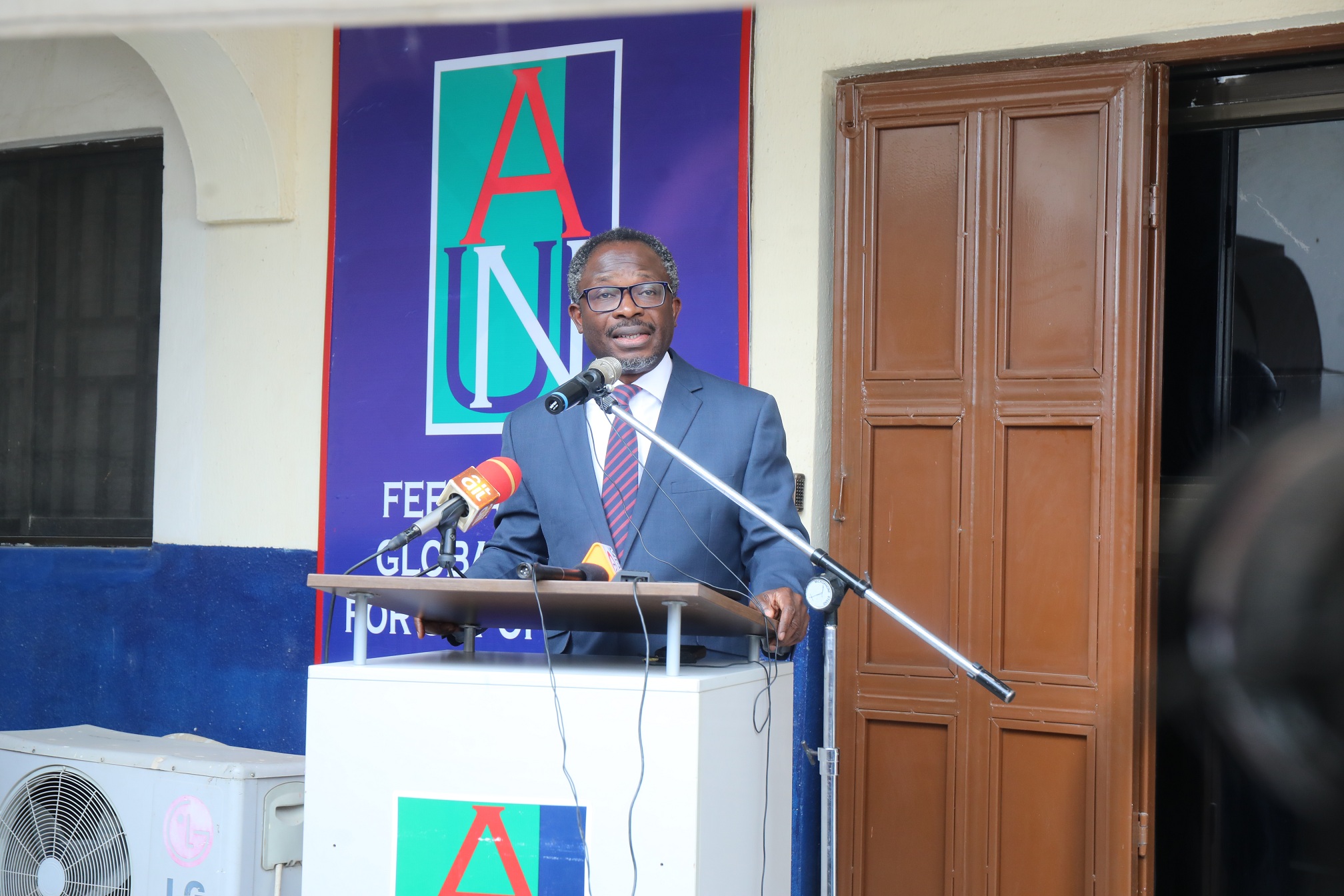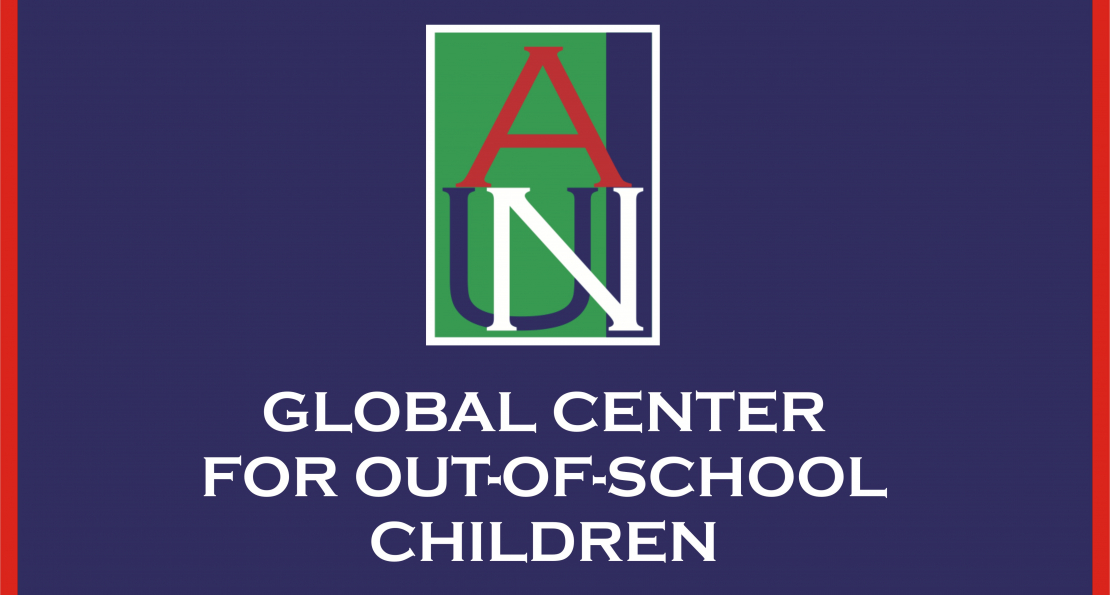Seven years after opening the doors for vulnerable kids in the Northeast to receive education and one decent meal per day under the highly successful Feed and Read program, the American University of Nigeria has gone further to introduce a Global Center for Out-of-School Children in Yola. The Center is presently housed in the Waziri Hall on the North Campus.
 The formal unveiling of the Global Center for Out-of-School Children side-by-side with the relaunch of AUN's signature program, Feed and Read, on Friday, February 4, 2022, is not fortuitous. The Center will focus on research and advocacy, enriched by the field experience gathered from the Feed and Read Program and other AUN-led interventions for educational inclusion.
The formal unveiling of the Global Center for Out-of-School Children side-by-side with the relaunch of AUN's signature program, Feed and Read, on Friday, February 4, 2022, is not fortuitous. The Center will focus on research and advocacy, enriched by the field experience gathered from the Feed and Read Program and other AUN-led interventions for educational inclusion.
Explaining the vision for establishing the Center, President Ensign said, "We will build the literature in the area of educating out-of-school children, what works in different contexts, communities and countries.
"And because this is a global problem, we will put the research together and begin to connect with the rest of the world, to take on what is a basic human right: the right to go to school to learn how to read and do basic math."
The American University of Nigeria has a long and successful history of providing education to vulnerable kids. President Ensign said AUN has "unusual experience" to share in this area.
"AUN has a long history with working particularly with children who are out of school during conflict situations. During the height of the conflicts (the Boko Haram insurgency which was accompanied by huge population displacements), Dean Jacob and other faculty who are here with us, started something called TELA (Technology Enhanced Learning for All) where twenty-two thousand refugee children, twenty-two thousand, were educated with radio and computer assisted learning."
President Ensign then reeled out grim statistics on the extent of exclusion of school-age populations from educational opportunities, especially in Northeast Nigeria.
 "There are estimated 2.8million out of school children in Adamawa, Yobe and Borno. In addition to that, there are 802 schools that remain closed, and another 1392 are damaged due to kidnapping and conflicts. The picture is even bleaker when we consider the gender dimensions. The female primary attendance rate of going-to-school girls in the Northeastern and Northwestern parts of this country is less than 48%. It means that more than half of the girls in these regions are out of school.”
"There are estimated 2.8million out of school children in Adamawa, Yobe and Borno. In addition to that, there are 802 schools that remain closed, and another 1392 are damaged due to kidnapping and conflicts. The picture is even bleaker when we consider the gender dimensions. The female primary attendance rate of going-to-school girls in the Northeastern and Northwestern parts of this country is less than 48%. It means that more than half of the girls in these regions are out of school.”
President Ensign challenged educated and privileged people in Nigeria, and the world, to consider the dire consequence of having such a large segment of the population out of school, illiterate, poor, and abandoned.
"We know that higher levels of education are associated with a wide range of positive outcomes including better health over a lifetime, reduced child and infant mortality, greater political interests, and engagements."
 Dean of the AUN Graduate School and co-creator of TELA, Professor Jacob Udo-Udo Jacob, noted that the Global Center for OSC initiative is further integrating teaching and research at AUN.
Dean of the AUN Graduate School and co-creator of TELA, Professor Jacob Udo-Udo Jacob, noted that the Global Center for OSC initiative is further integrating teaching and research at AUN.
Professor Jacob offered stark data on access to education in the Northeast region. He argued that females have emerged more vulnerable, while insecurity in schools has further depleted the ranks of both teachers and caregivers while creating fear in the minds of school-age children.
"Beyond these numbers are many personal stories. As the world grapples with increasing numbers of persons that need humanitarian help and protection, there is need to muster every effort to widen access to education for all children. Education accounts for less than 2 percent of total global humanitarian funding. And this makes this effort so important.”


